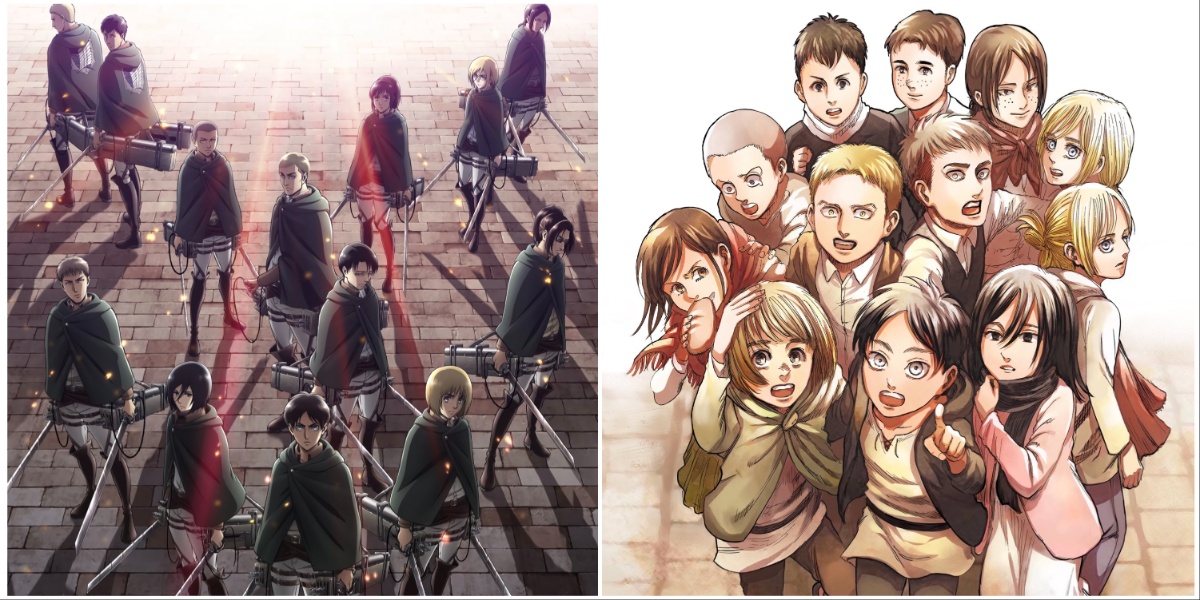A Decade After Its Debut, ‘Attack On Titan’ Has Come to an End

A decade after its debut, Attack on Titan has aired its last episode. Many fans were in tears after the anime was neatly wrapped up. Even if there were a few detractors who didn’t like the conclusion of Eren’s storyline, the final episode of the anime has generally received a lot of praise from fans.
**Spoilers ahead for Attack on Titan season 4, part 3, and the finale**
The last episode of Attack on Titan season 4, part 3, revolved around the coalition between the surviving Survey Corps Scouts and the remaining Marleyan Warriors, both of whom resolved to stop The Rumbling. Even Mikasa, who cared deeply about Eren, joined the fight and ended up being the one to take his head.
The ending of Attack on Titan explained
The anime has long centered around Eren and his quest for freedom. “What part of you is free?” This was a question posed by Armin upon landing on Eren, who has long since transformed into The Founding Titan to initiate The Rumbling. But the answer to that question is shortly provided by Armin himself, who claims that “Someone who can’t give up everything will never be able to change anything.”
This is because Eren knew that the only way to save his friends and his people was to become the villain himself. He had to give everything up to achieve freedom for all, even if it meant becoming a prisoner of his own pursuit. This wasn’t a careless throwaway plan because Eren was able to see memories of the past and the future as the inheritor of the Attack Titan. He was made aware of this power early on in the fourth season after he connected with Historia.
It was only revealed during Eren’s conversation in The Paths with Armin that many of the events in the anime were manipulated by Eren himself through The Paths. His ability to see the future and influence it made him the best decision-maker for humanity’s fate, and it’s arguably a position that brought a lot of people freedom in the end. But it was a position that ironically forced Eren into killing multiple characters who loved him for the best outcome, including his mother. There were simply no decisions that came without sacrifice for Eren, and Armin understood that after his last conversation with him.
In the manga, Armin said, “Thank you for being a mass murderer for our sakes,” to Eren. The anime made it subtler by making Armin simply thank Eren for his sacrifice and omitting the genocidal aspect of it.
The boy who sought freedom died in chains
Perhaps one of the most painful aspects of Eren’s arc is that he didn’t achieve anything for himself. He put his friends, his loved ones, and his fellow Eldians first. Despite the supposed freedom the knowledge of the past and the future could give to him, it did nothing except make him the perfect judge of humanity’s fate.
That meant being unable to decide without a care in the world. In his conversation with Mikasa in The Paths, he proclaimed he wanted to live the rest of his years with her, even if the world came crumbling down around them. But he couldn’t make that ultimately selfish choice, so instead, he decided to set Mikasa free and become the world’s most hated man.
Eren’s pursuit of freedom is tied to what he truly wanted: a long and peaceful life spent with Mikasa by his side, among friends he loved and cherished. But his abilities deemed that ending impossible if he were to give everybody else he cared about a place in the cruel world that wanted nothing to do with Eldians. All he could do in the end was punch the floor and cry about how he was about to die and how he didn’t want to be forgotten by Mikasa, even if he wanted her to be happy.
Attack on Titan is a story with many themes, but it’s mostly a story about a boy who dared to dream beyond the walls that caged him and his friends. It’s also a tale about power and its various constraints. It’s a narrative about racism, war, and reactionary forces. But most importantly, Attack on Titan is a story about freedom and what people do with it.
(featured image: MAPPA and Hajime Isayama/Bessatsu Shonen Magazine)
Have a tip we should know? [email protected]